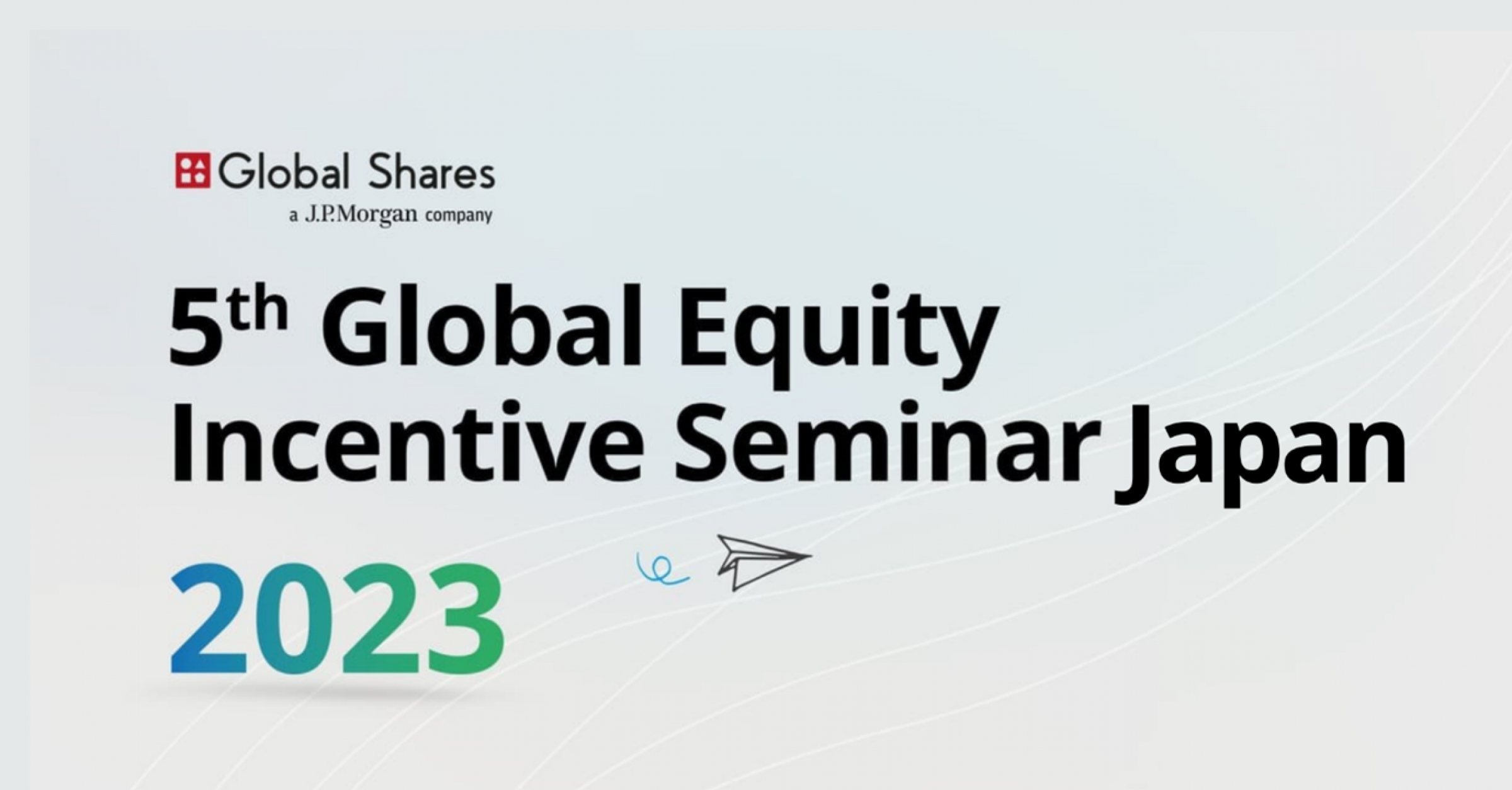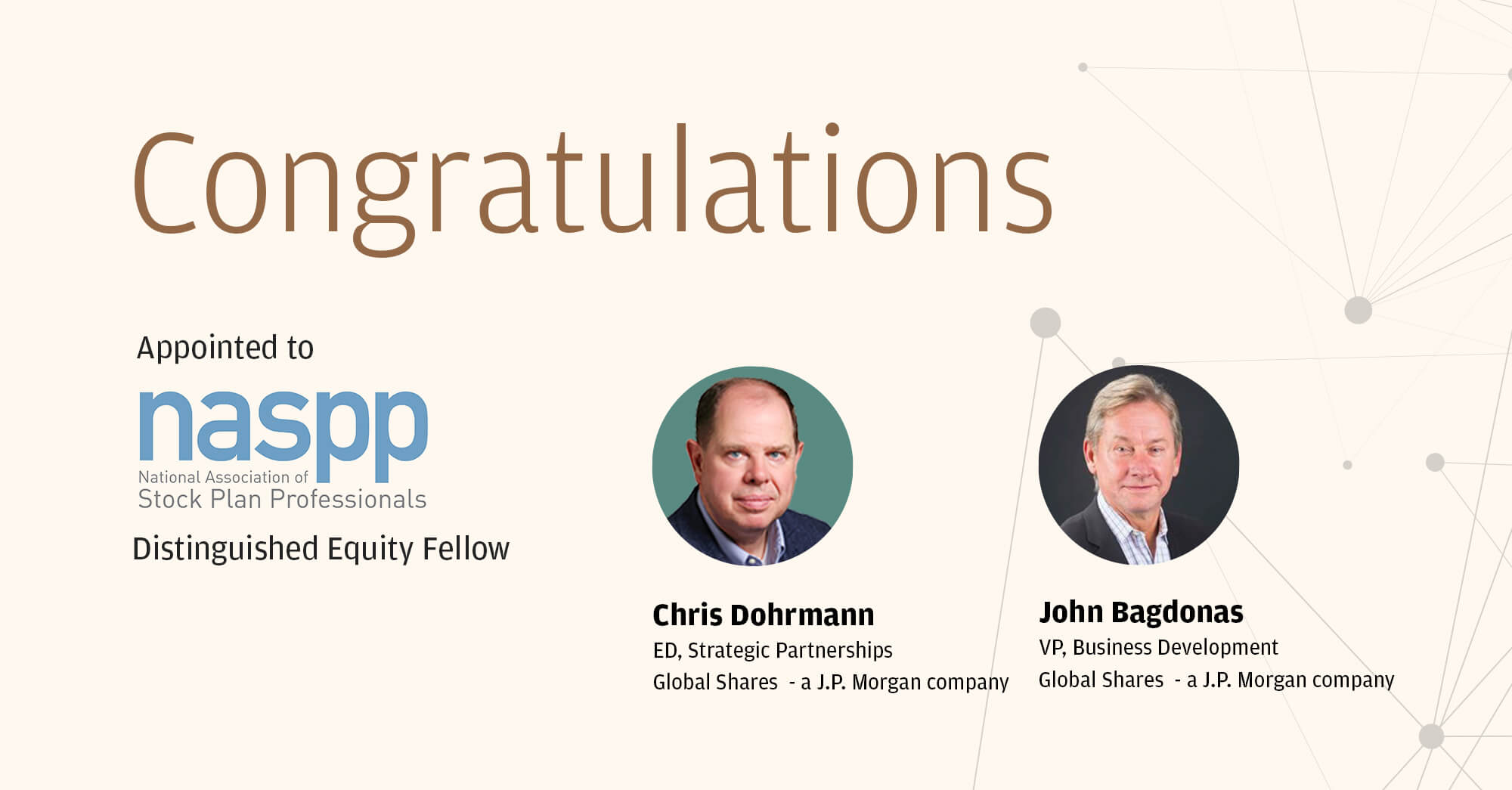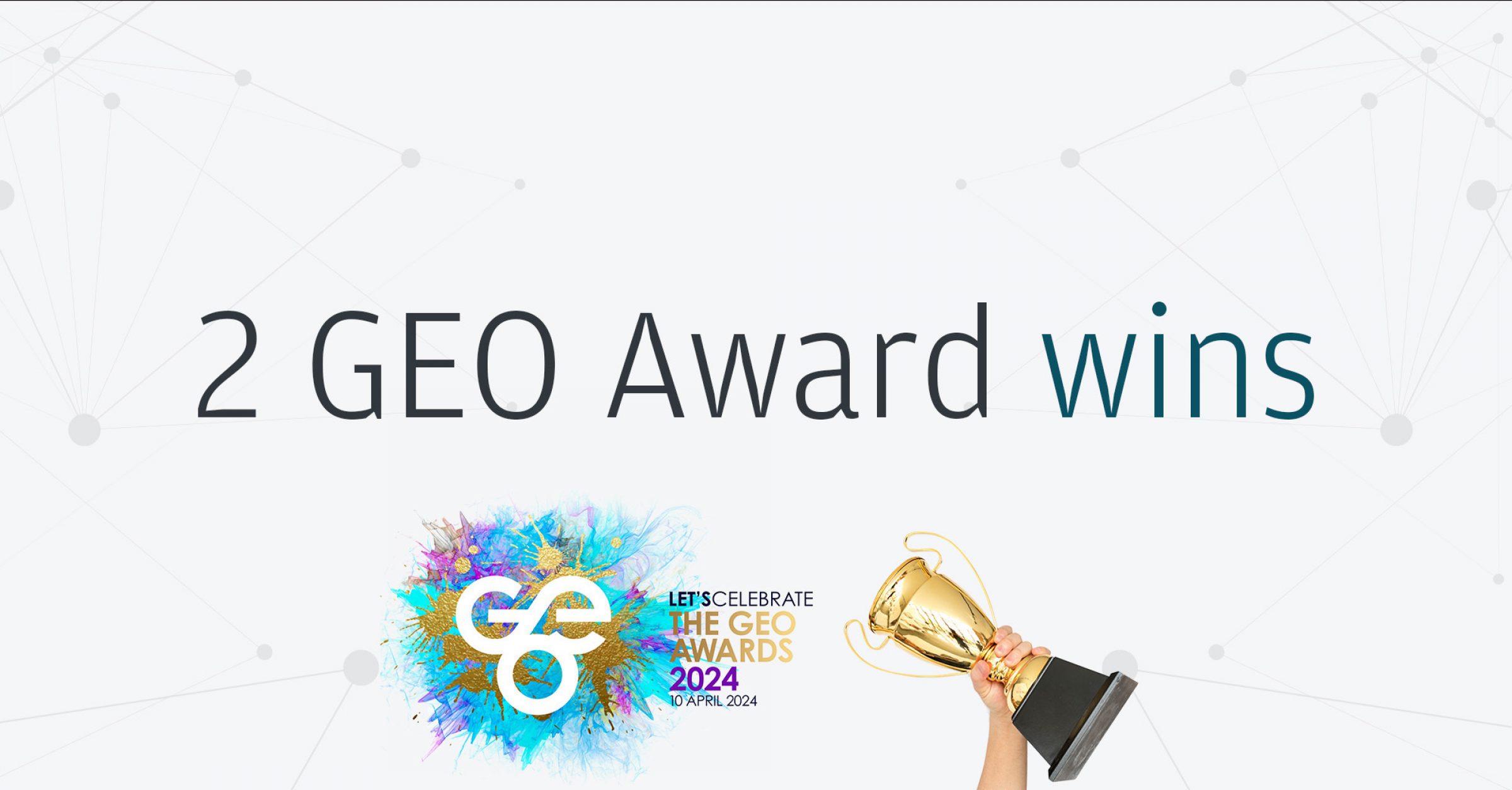Global Shares, a J.P. Morgan company, was delighted to host the 5th Global Equity Incentive Seminar in Japan, which took place at the Morgan Center in J.P. Morgan, Tokyo, on Nov 9th 2023.
This annual event had a packed agenda which saw speakers from across the industry come together to share their thoughts and insights about recent developments in the employee share ownership space with an audience of 70+ professionals from across 35 companies.
Toshiro Takino, Managing Director, Global Shares Japan welcomed attendees and opened proceedings by addressing how Global Shares, as a J.P. Morgan company, not only actively tackles common equity compensation challenges but also promotes the equity compensation network in Japan. He highlighted that equity compensation provides many opportunities for companies and remains a key to ‘virtuous cycle of growth and distribution’ for many Japanese companies, the theme strongly promoted by the Japanese Government.
Keynote speaker Yasunori Nakagami, CEO of Misaki Capital Inc. then took the floor. A well-known long term engagement investor who advocates the Trinity Model of Management as a means to increase the overall enterprise value under the coalition of management, employees, and investors to reap the benefits. He addressed that to achieve the goal of bringing wealth to everyone, stock ownership by employee should be increased to ensure they too can share the benefits of corporate value increase.
Nakagami-san noted that in the US, many companies have introduced stock-based compensation whereas this remains less common among large Japanese companies. He equated that Apple as a company enables constant technological innovation by harnessing the power of employee ownership.
He explained that the percentage of a company’s outstanding shares given to employee in a given year is called a “burn rate”. According to his research, Apple’s burn rate in 2019 was 0.83% and, assuming that Apple’s market cap at that time was 100 trillion JPY, then 830 billion JPY worth of the company’s stock would have been distributed to employees.
Naoto Ogawa, Director of Executive Compensation & Board Advisory Practice, WTW, then spoke about recent trends in equity compensation plans. This insight was based on a vast amount of sample data from both Japan and overseas, as well as from their own survey findings. Ogawa-san emphasised the point that executive compensation has dominated discussions in Japan, but the focus is starting to shift away from the C Suite towards broader employee compensation, which included the topics of continued wage increases and expansion of the scope of equity compensation.
Yuhei Kageyama, Senior Manager of Group HR Compensation, Sony addressed the audience from an equity compensation practitioner perspective and the company’s introduction of a global RSU program.
Kageyama-san explained how Sony has been granting stock ownership since 2002 for thousands of employees in Japan using ordinary shares and to US employees using ADRs. As a growing conglomerate company, in order to attract and retain the top talents from various background, Sony needed to offer a full-value award using the parent company ordinary shares. Due to the complex local legal requirements, Sony had been reluctant to introduce the global LTIP using ordinary shares, however since their main revenue streams are now from AI, music, movies and gaming, all of which are concentrated in the US, the absence of a RSU offering was potentially a great risk when it came to competing with other hi-tech companies in the region.
Finally, in November 2022, after overcoming many obstacles and thanks to collaboration across different lines of business and external partners including Global Shares, Sony successfully granted their RSU award. Kageyama-san described this process as a “Mixed Martial Arts in corporate sector (meaning 360 degree collaboration across its corporate functions)” and explained that since the introduction of RSU, some subsidiaries have already seen positive effect with staff turnover having been reduced by half. This session really inspired the audience.
The first panel discussion focused on the Purpose of Equity Compensation and was facilitated by Global Shares’ Elisha Wada who was joined by the previous speakers Nakagami-san, Ogawa-san, and Kageyama-san to deep dive into the fundamental reasons as to why equity compensation is important and we should use shares for incentive purpose instead of cash.
The second panel was a Legal Professional Session where Koichi Saito and Takahiro Hayase, Partner in Anderson Mori & Tomotsune, one of the most highly regarded law firms in Japan, summarised the major local legal issues that occurred over the past year. They were joined by Chris Fallon, Partner and Steve Penfold, Managing Associates in Tapestry Compliance who highlighted the steps to conduct global due-diligence, with a focus on how Japanese companies can leverage Tapestry’s global experiences.
The last panel discussion was moderated by Global Shares’ Rikako Bocchietti, who hosted two HR Compensation Practitioners from Astellas Pharma and Tokyo Electron to discuss real day to day examples of operational hurdles that can occur after introducing a global equity compensation plan and how each has overcome those challenges.
Closing remarks were delivered by Stuart Sloan, COO, who communicated that Global Shares’ continued commitment to Japan, now as a part of J.P. Morgan, will continue to bring exciting developments and enhancements that will benefit clients in Japan with a special focus on the user-experience and continued improvements via our portal and Workplace solution.
This highly successful, engaging and informative event was closed with a reception afterword which provided a very valuable opportunity for attendees and speakers to network and share feedback.
By visiting a third-party site, you may be entering an unsecured website that may have a different privacy policy and security practices from J.P. Morgan standards. J.P. Morgan is not responsible for, and does not control, endorse or guarantee, any aspect of any linked third-party site. J.P. Morgan accepts no direct or consequential losses arising from the use of such sites.
Please Note: This publication contains general information only and J.P. Morgan Workplace Solutions is not, through this article, issuing any advice, be it legal, financial, tax-related, business-related, professional or other. J.P. Morgan Workplace Solutions’ Insights is not a substitute for professional advice and should not be used as such. J.P. Morgan Workplace Solutions does not assume any liability for reliance on the information provided herein.



